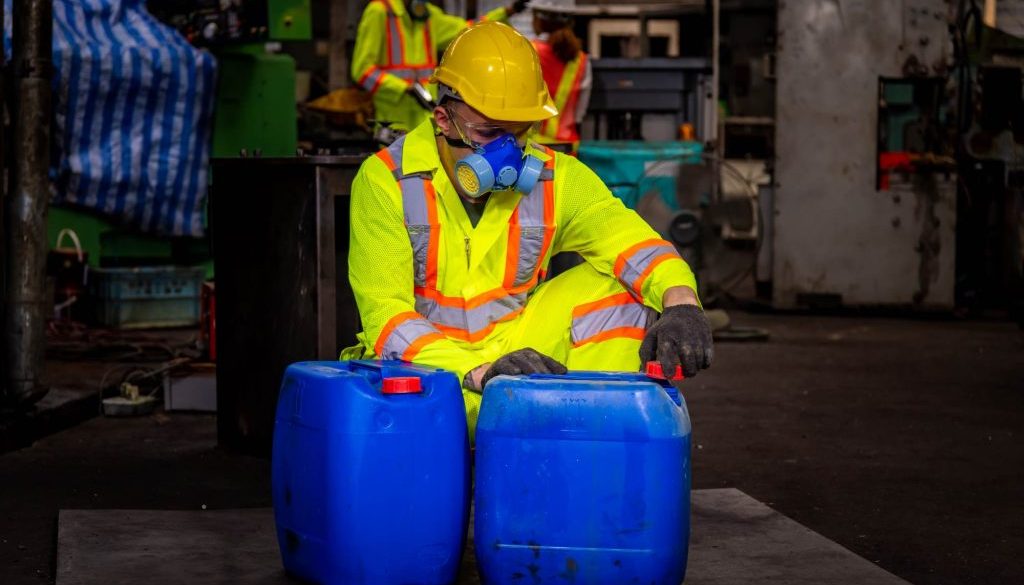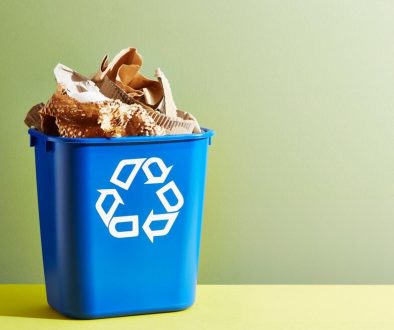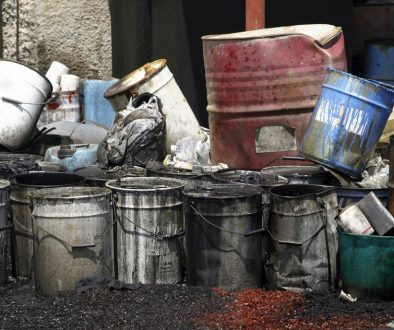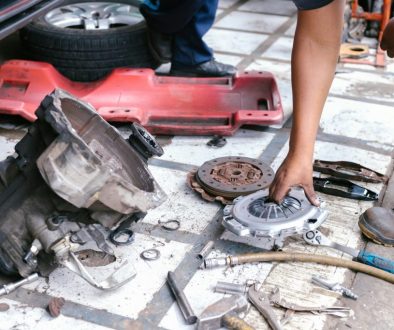In today’s increasingly eco-conscious society, understanding and complying with proper hazardous waste disposal practices are paramount to ensuring the safety of our environment and communities.
As a family-run skip hire and aggregate company servicing Staffordshire, we recognise the importance of safe and responsible hazardous waste management. With that, we’ll divulge vital insights into the world of hazardous waste disposal, equipping you with the knowledge to adopt best practices and contribute to a cleaner and healthier planet.
So, join us as we demystify the complexities of hazardous waste disposal and highlight its significance in promoting a safer and more sustainable environment. By understanding and adhering to responsible disposal practices, we can all play our part in minimising risks, conserving our ecosystem, and safeguarding our planet for future generations.
Mitigating Environmental Impact: Essential Strategies for Hazardous Waste Management
1. Identifying and Classifying Hazardous Waste
The first step in responsible hazardous waste disposal is to identify and classify the waste material accurately. Hazardous waste is defined as any rubbish that poses significant risks to human health or the environment due to its toxic, reactive, corrosive, or ignitable nature. Common examples include:
- Chemical waste: solvents, pesticides, batteries, cleaning agents, and paint
- Electronic waste: computers, mobile phones, and other electronic devices containing hazardous components
- Medical waste: sharps, pharmaceuticals, and infectious materials
- Automotive waste: engine oils, antifreeze, and lead-acid batteries
Understanding the nature and potential risks associated with these waste materials helps ensure proper handling and disposal techniques are employed, ultimately protecting both people and the environment.
2. Managing and Handling Hazardous Waste
Once the hazardous waste is identified and classified, appropriate management and handling practices must be put in place. Key aspects of managing and handling hazardous waste include:
- Proper containment: Use appropriate containers and storage systems, such as sealed drums, to prevent leaks and spills.
- Labelling and signage: Clearly label waste containers with the type of hazardous waste they hold, along with any specific handling instructions or warnings.
- Waste segregation: Store different types of hazardous waste separately, as mixing could lead to dangerous chemical reactions and contamination.
- Employee training and protective gear: Ensure employees handling hazardous waste receive adequate training and wear appropriate personal protective equipment to minimise risks.
3. Responsible Hazardous Waste Disposal and Compliance
Adhering to industry best practices and regulatory requirements for hazardous waste disposal is essential in mitigating risks to the environment and human health. Key considerations for responsible disposal include:
- Proper treatment: Ensure hazardous waste is treated adequately to reduce or eliminate harmful elements before disposal, where applicable.
- Licensed disposal facilities: Dispose of hazardous waste at appropriately licensed facilities designed to handle such materials safely and responsibly.
- Record keeping: Keep detailed records of the hazardous waste generated, transported, and disposed of, to track compliance with relevant regulations.
- Regular waste audits: Conduct periodic waste audits to review disposal practices and continuously improve hazardous waste management processes.
4. Engaging Licensed Hazardous Waste Management Providers
Working with experienced and licensed hazardous waste management providers is crucial in complying with regulations and ensuring responsible disposal. Key factors to consider when choosing a provider include:
- Expertise and experience: Select a provider with a proven track record in handling your specific type of hazardous waste.
- Comprehensive services: Look for providers offering a full range of services, including waste identification, packaging, transportation, and disposal.
- Regulatory compliance: Confirm that the provider holds all necessary licenses and permits to handle hazardous waste, and adheres to local and national regulations.
- Commitment to sustainability: Partner with environmentally conscious providers that prioritise waste reduction, recycling, and resource conservation.
Securing a Sustainable Tomorrow: Understanding and Managing Hazardous Waste
Hazardous waste disposal poses significant environmental and health risks, demanding a holistic and effective approach. By understanding the nature of hazardous waste, its potential impacts, and the regulatory landscape, we can make informed decisions and implement sustainable waste management practices.
Remember, our actions today will shape the environmental legacy we leave behind. Embracing responsible hazardous waste disposal practices ensures a sustainable future where the environment and human well-being coexist in harmony.
If you require assistance in navigating the complexities of hazardous waste disposal in the UK, or seek advice on best practices, our expert team at Enviro Skip Hire is here to help. Contact us today to discuss your hazardous waste management needs, and let us help you create a safer, cleaner environment.




